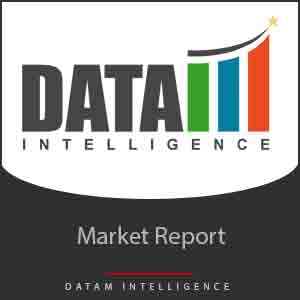
How To Make North America Ethical Food Market
The North American ethical food market was valued at US$ YY million in 2020 and is likely to reach US$ YY million by 2029
2021-12-28
The North American ethical food market was valued at US$ YY million in 2020 and is likely to reach US$ YY million by 2029, growing at a CAGR of 11.7% during the forecast period (2022-2029).
Taste has been the most critical aspect of consumer food decisions for years. On the other hand, value-driven consumers are increasingly assessing other factors such as social justice, animal welfare, and environmental stewardship, all of which influence their food and beverage purchasing decisions. The concept of "ethical eating" is becoming more common as awareness and action continue to grow.
Approximately 15% of the food consumed in the U.S is farmed or produced outside the country. Many products native to Mexico, Central America, and South America, such as bananas, coffee, chocolate, and avocados, are significantly imported to the U.S. In addition, most of the seafood in the U.S comes from China, Thailand, and Indonesia, Canada, Vietnam, and Ecuador.
Importing goods can assist in supporting international relations and provide a stable source of revenue for small farmers and producers in other countries. It also means that some vital regulation is frequently outside of the jurisdiction of the U.S. Imported foods face multiple challenges such as worse labor regulations and enforcement than those found in the U.S. As individuals and groups struggle for goods and their accompanying earnings, violence, forced labor and extortion have been witnessed.
For example, the fish business has been criticized for human rights violations in the supply chain, primarily due to forced labor. According to a 2018 USDA Foreign Agricultural Service report, Thailand has been recognized as a persisting problem of human trafficking and illegal, unregulated, and unreported fishing.
Transparency throughout the supply chain can be a challenge for U.S. enterprises that buy seafood from international locations because many ships and vessels rely on third parties for labor recruiting.
The third-party agencies may be uncontrolled in many locations, with just limited monitoring and paperwork required of the agencies and hired staff. It reduces transparency in labor and recruitment methods such as worker contracts, pay structures, and working hours. Many newly hired employees are migrants from other regions who are subject to exploitation due to low wages and working conditions. Human trafficking has been seen in several cases. In some other cases, employees voluntarily enter the workforce and the scenario develops into forced labor.
Despite restrictions and paperwork requirements for putting animal raising claims on meat and poultry products, consumer confusion can arise due to labeling related to animal welfare standards. A variety of packaging in the U.S claims the degree of freedom a hen had before laying eggs. Cage-free, free-range, and pastured are all claims made on egg cartons. According to the U.S. Department of Agriculture-graded eggs, "Cage-free" eggs mean that the hen could move around the hen house before laying the egg, among other things. In contrast, the term "free-range" refers to eggs produced by cage-free hens who were permitted to roam freely.
The region has the presence of renowned ethical companies globally. For instance, in 2018, Bimbo was named to The Ethisphere Institute's list of the World's Most Ethical Companies as the only Mexican company. The company also contributes to around 300 non-profit organizations, which support various social responsibility policies and environmental issues, such as constructing a windmill park and other environmental initiatives.
About Us:
DataM Intelligence was incorporated in the early weeks of 2017 as a Market Research and Consulting firm with just two people on board. Within less than a year, we have secured more than 100 unique customers from established organizations all over the world.
For more information:
Sai Kiran
Sales Manager at DataM Intelligence
Email: [email protected]
Tel: +1 877 441 4866
Website: www.datamintelligence.com
Found it interesting?
Sai Kiran
Sales Manager at DataM Intelligence
Email: [email protected]
Tel: +1 877 441 4866
We have 5000+ marketing reports and serve across 130+ countries
#north america ethical food market, #north america ethical food market size, #north america ethical food market share, #north america ethical food market trends, #north america ethical food market value, #north america ethical food market growth, #north america ethical food market demand, #north america ethical food market industry forecast, #north america ethical food market outlook, #north america ethical food market analysis, #north america ethical food market applications, #north america ethical food market companies, #datamintelligence
